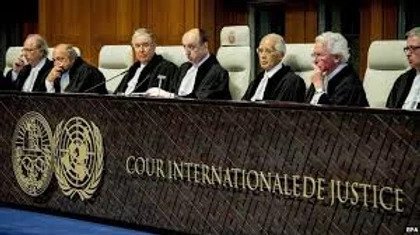
The name ‘Aleppo’ is in this week’s news, but I wonder how many people really get what’s going on there. They should, because – while it’s impossible to know exactly what’s happening – it looks like another round of genocide.
And worse still, the events of the past few months – and probably the next few – mean that the perpetrators will simply get away with it because no-one is willing to oppose them.
Despite the horror, there is something comforting about looking back on past genocides, because we try to convince ourselves that we have learned from them. The Holocaust is horror defined, but we like to think it couldn’t happen again. The genocide in Bosnia in 1992 and Rwanda in 1994 were proof that it can, but at least many of those perpetrators were brought to some form of justice, much of it through the International Court in The Hague.
What’s happening in Aleppo is made worse by the fact that it has Russian support. We should all celebrate the demise of Isis/Daesh (though the recapture of Aleppo is not necessarily the ultimate demise), but Syrian forces backed by the Russians appear to be executing innocent civilians in the areas of Aleppo that they’re liberating.
And the Russians know the rest of the world will do nothing about it. No-one will end up in The Hague. I have a lot of time for John Kerry, an American Secretary of State who speaks French and has earned a lot of respect behind the scenes, but his words are empty. He’s right when he says the atrocities in Aleppo must stop, but we know they’re not going to.
Because waiting in the wings is a new American president who is saying we need to go easy on Russia and not assume it’s the enemy. And next year’s French presidential election looks like being between two people (François Fillon and Marine Le Pen) with similar views. This is why Russia can do what it wants without fear of sanction, however horrific it knows its actions are. I’m all for revising our picture of who the enemy is, but how can anyone relativise the execution of innocent civilians?
As the son of a refugee from Nazi Germany, perhaps I feel this more than some. I lost great-aunts and great-uncles in the concentration camps, and while it would be disingenuous to say I’ve grieved for them, I know their descendants as family, and have read some of the letters they sent. It makes it very real, which makes the plight of the families in Aleppo real too, even if I don’t know them personally.
My only way of consoling myself about what’s happening is to see the world as a group of small children. Watch the behaviour of a small child and you’ll see a mixture of great kindness and great brutality – when a child’s needs are met, it is capable of great generosity, but when it feels threatened, it lashes out. This lashing out is what the world is doing through Brexit, Trump, Aleppo, Turkey and countless other hotspots.
Somehow – don’t ask me how – we have to find a way of meeting the needs of the world’s small child, so the causes of genocide die at the root.
